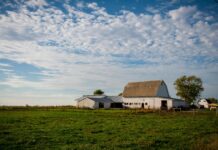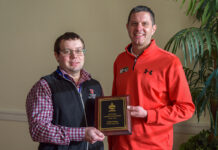ELKINS, W.Va. — The United States Department of Agriculture, Wildlife Services is once again able to utilize M-44 devices in its Integrated Predator Management Program in West Virginia.
This program, commonly known as the “coyote control program,” was first implemented to protect West Virginia’s sheep and goat producers from devastating losses inflicted upon their herds and flocks by coyote depredations.
Under this program, livestock losses on participating farms dropped to 1.6 head per year in 2007, compared to a high of 28 head per farm in 1995 before the program started.
Recent action by the state legislature now allows cattle producers to avail themselves of the program’s benefits. Unavailability of the M-44 device in 2017 led to increased livestock losses even with Wildlife Services’s reliance upon the remaining methods in its toolkit.
When the preventive and nonlethal control methods used by producers are ineffective in controlling predation, or on farms with a history of predation, wildlife service specialists can assist.
They do so by targeting coyotes and some other wildlife that prey upon sheep, goats and cattle herds across West Virginia. Among the methods are the use of snares, foothold traps, the M-44 devices and night shooting.
Only trained and certified wildlife services specialists can set the M-44 device on farms where depredating coyotes are killing livestock.
The landowner or manager must give written permission. Their use is approved and regulated by the U.S. Environmental Protection Agency.
In West Virginia, 9 out of 10 animals taken with the device are the targeted coyote.
How it works
The device is a slender spring-loaded tube set in the ground. Bait on the end of the device attracts coyotes and other canids in the field where it is set.
When a coyote tugs at the device it releases sodium cyanide that, on contact with its mucous membranes, is immediately fatal to the animal.
In West Virginia, the M-44 device is the most effective method to eliminate depredation by coyotes. It is inexpensive, can be quickly set out or relocated to another part of the farm as needed.
It does not attract sheep, goats, cattle horses or any grazing livestock. The devices are checked regularly by the wildlife services specialist and, if triggered, are replaced.
The program is funded by a line item allocation, for fiscal year 2019, $176,400, in the West Virginia Department of Agriculture budget and by a $1.00 assessment on every breeding age sheep and goat paid by the individual producer to the county assessor who forwards funds to WVDA for disbursement.
These funding methods were enacted by the West Virginia Legislature at the urging of the West Virginia Shepherds Federation, the West Virginia Farm Bureau and individual livestock producers across the state.
This year the legislature expanded funding for the program by enacting a voluntary assessment of $1 per breeding age cow.
To be eligible for services through the program a sheep, goat or cattle producer must have paid the assessment for the current year.
Interested sheep, goat and cattle producers should contact the West Virginia Wildlife Services at its Elkins, office at 304-636-1785 and ask for Tom Elliott, district supervisor or John Forbes, state director.
For additional information call Joe Aucremanne, West Virginia Shepherds Federation president at 304-445-1516 or by emailing wvashepherds@yahoo.com.











This will kill pets and has shown to be harmful to people. A young boy and his dog came upon one of these in Illinois. Killed the little boy’s beloved pet!!! As much as I am for reducing the numbers of coyotes in WV, this is not the way!!! I don’t want cyanide anywhere near where pets and people may be exposed, not to mention contaminating our soil and water supply!!! I don’t want it within 800 feet of my property, which this legislation permits! STOP THIS PRACTICE!!!
Is there some place public that I can know in what areas (or even general area) these traps are set? That way I know where my family and dog can avoid. Thanks
I completely agree with the decision to authorize the use of the M-44 device for coyote control in West Virginia. As a farmer myself, I know firsthand the devastating impact coyotes can have on livestock. This device is a necessary tool to help protect our livelihoods and ensure the safety of our animals. It’s great to see the state taking action to address this issue.